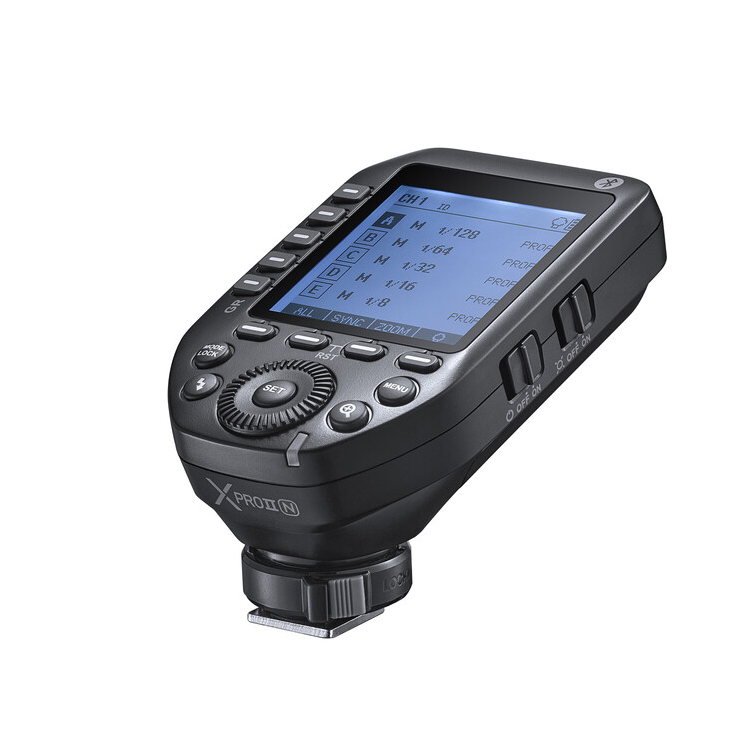Using the 2.4 GHz Godox X wireless radio system, the XProP TTL Wireless Flash Trigger can be used to effectively and reliably trigger flashes from up to 328^27 away, and when used with compatible flashes and receivers users will have the added benefit of remote power control. This model is compatible with Pentax^27s TTL system, including support for high-speed sync up to 1/8000 second, and offers advanced control options along with settings for working with system-specific features. For ensuring maximum reliability and control, users can set up 16 groups on one of 32 channels and can then access 99 wireless ID settings for limiting interference from other nearby systems.
In addition to basic manual and TTL control modes, other settings are available, including stroboscopic flash and second-curtain sync. Users can adjust flash exposure compensation from -3 to +3 EV as well as wirelessly control the modeling light, zoom setting, and more. For using the XProP with other camera systems there is a 2.5mm sync port that supports triggering via a wired connection. Also, a USB Type-C port is present for firmware updates and the devices run on two AA batteries for convenience.
Designed for the 2.4 GHz Godox X wireless radio system, this XProS II TTL Wireless Flash Trigger lets you effectively and reliably trigger flashes up to 328′ away. This upgraded model is compatible with Sony TTL system, including support for high-speed sync up to 1/8000 second, and offers advanced control capabilities for working with system-specific features. For ensuring maximum reliability and control, users can set up 16 groups on one of 32 channels and can then access 99 wireless ID settings for limiting interference from other nearby systems.
Additionally, this wireless trigger now features Bluetooth connectivity for remote operation. Simply download the GodoxPhoto app onto a compatible iPhone or Android smartphone or tablet, and you can remotely adjust the flash mode, power output, modeling light, high speed sync, and more. In addition to basic manual and TTL control modes, other settings are available as well, including stroboscopic flash and second-curtain sync. Users can adjust flash exposure compensation from -3 to 3 EV and wirelessly control the modeling light, zoom setting, and more.





